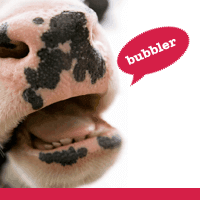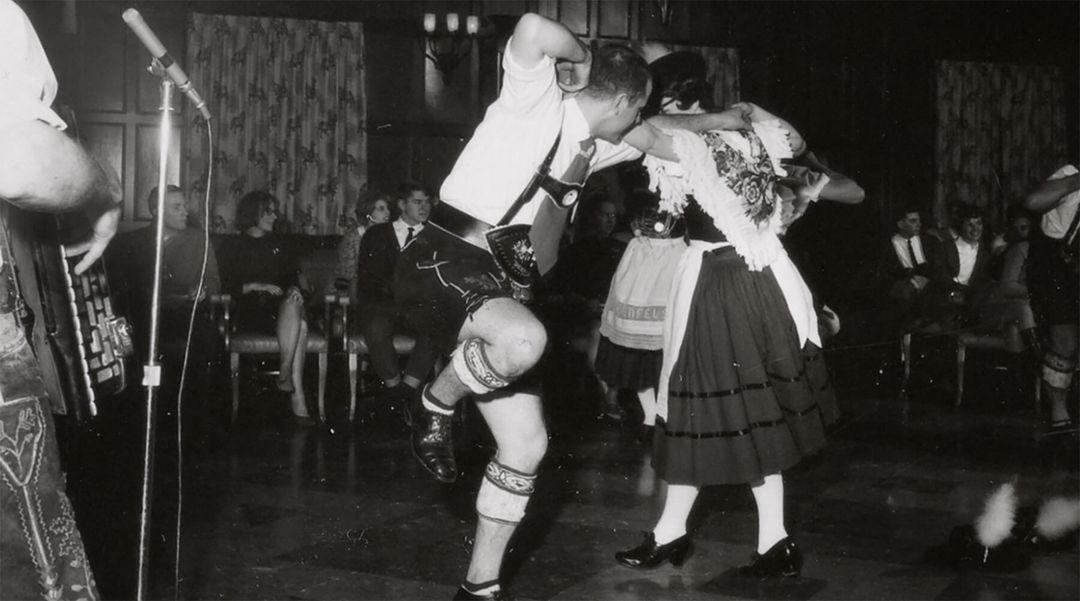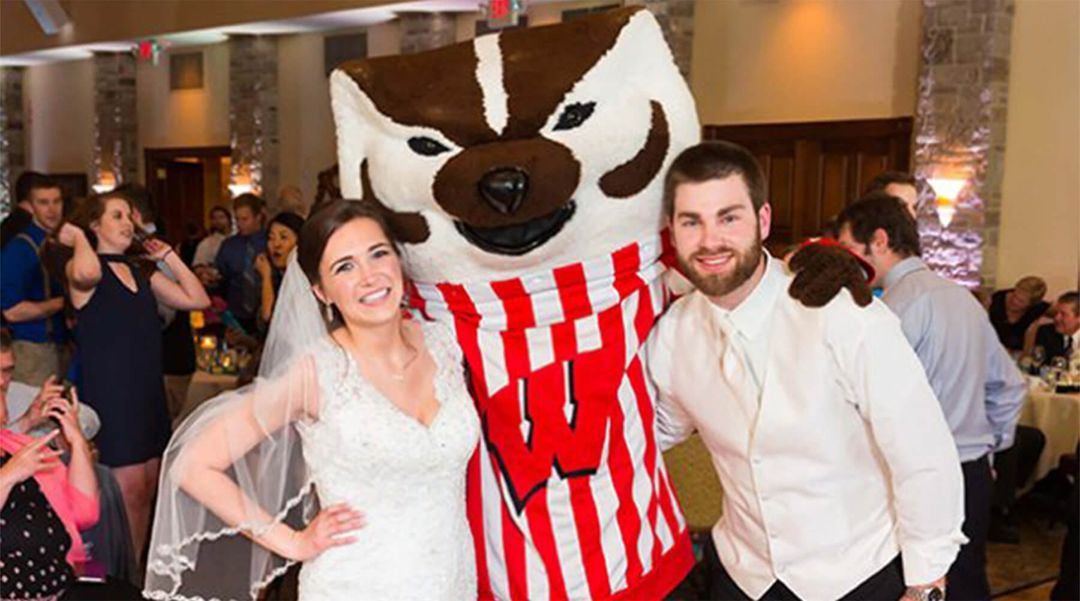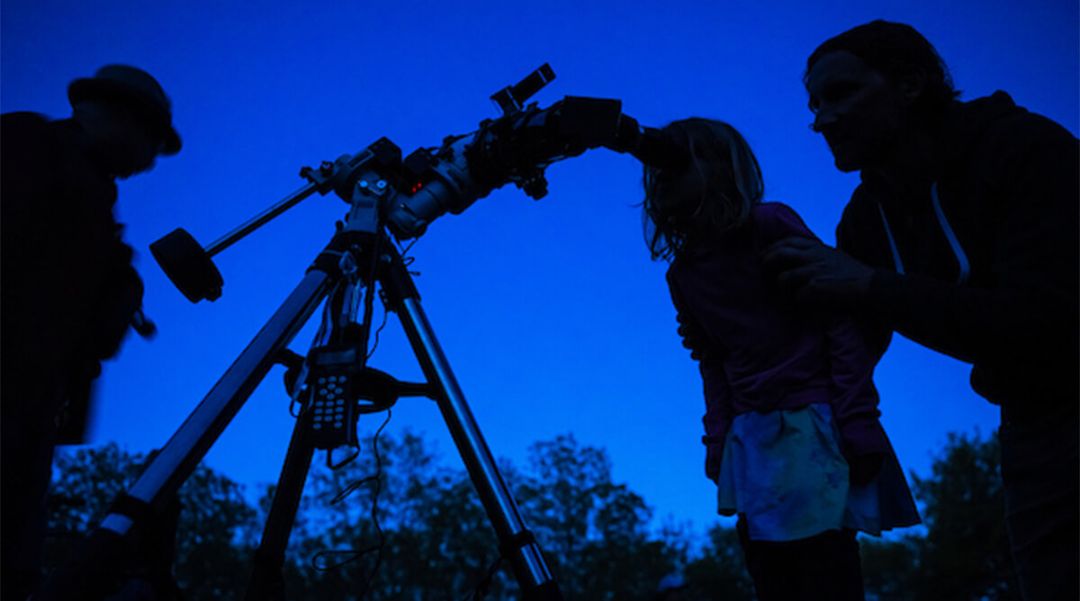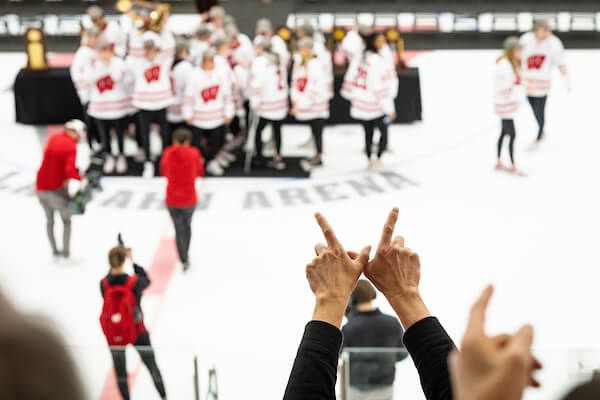The Why and How of What Badgers Say
One does not use the term “y’all” when on a hockey rink in Wisconsin.
That was one of the first lessons that Joe Salmons learned about Wisconsin English when he moved to Madison with his wife more than a decade ago.
“Being from the South, I’d never ice-skated,” says Salmons, a professor in UW-Madison’s Department of German. “One night, out on the ice with my brother-in-law, our puck became mixed up with another group’s. I skated over and asked, ‘Is this puck y’all’s?’ and they nearly laughed me off the rink! After that, I learned to speak a less Southern English.”
It’s only fitting that a North Carolina native who grew up with what he describes as a “very heavy accent” would be studying another of the United States’ distinctive dialects — Upper Midwestern. And as an outsider, he’s more attuned to the oddities that make Wisconsin English unique.
“We are born unaware that not everyone sounds like us,” Salmons says. “While some people may move, and adjust their speech to reduce the perception of an accent, there are some things you can never change … and you might not even realize are happening.”
Celebrating the Wisconsin Idea
Salmons says he was thrilled to speak with UW alumni — especially native Wisconsinites – at Founders’ Day celebrations hosted this season by the WAA: Fond du Lac, Fox Valley and Indianapolis chapters.
“Some people know the history of their language and dialect,” he says, “but they also move the conversation ahead with great questions, because they live it. I always get new examples and new data from events like Founders’ Day.”
Salmons is the Lester W.J. “Smoky” Seifert Professor of Germanic Languages at UW-Madison, where his research and teaching focus on speech sounds and language change. He formed the Wisconsin Englishes Project with two other linguists in 2006.
He says that while there’s a thriving industry of language experts studying dialects in the South and the Northeast, the Upper Midwest is “uncharted waters.”
“We live in one of the richest places in the country to look at the English language, as well as immigrant and indigenous languages,” he says. “It’s because of the history of immigration to the state that we’ve seen the emergence of what we know as real, distinct Wisconsin English today.”
That includes a strong German influence that can be heard in some surprising ways, especially in the eastern part of the state. In the German language, for example, the word “once” is often added to a command such as “Come here” to soften its meaning or make it friendlier. Salmons says that these “modal particles” season the way we talk, and particles became so ingrained that Germans who learned to speak English kept the pattern and passed it down to new generations.
Today, someone who lives in Manitowoc or Sheboygan might say to a friend, “Come here, once,” without understanding why.
“As someone who speaks German,” Salmons says, “things in Wisconsin English sound very German to me sometimes. Many people in the state either use the word ‘once’ themselves, or at least recognize it.”
New and Distinct
The way Badgers sound is changing — and with surprising speed.
Salmons says Americans assumed that radio, followed by television, would wash away any accent distinctions, and that we would eventually all sound the same. But it turns out that dialects across the United States are becoming more distinct, not less so.
The Dictionary of American Regional English collected recordings of Wisconsinites born in the 19th century. Using computer phonetic analysis, Salmons and his colleagues compared those recorded in the 1950s with young people of today. They discovered that dialects are actually becoming more distinct in Wisconsin — compared with other states, and even within our own borders.
“Things are changing very rapidly in our speech right now,” Salmons says. “Things we think of as Wisconsin English didn’t exist a few generations ago.”
Young people in eastern Wisconsin, for example, tend to pronounce their “z’s” more like an “s.” As Salmons describes it, a young person from Muskego saying the word “buzz” might seem (to an outsider) to be saying “bus.”
Vowels are pronounced differently, too. A few generations ago, most people in the country — including Wisconsin — pronounced “cot” and “caught” very differently. Salmons says that young people, especially in Eau Claire and northwestern Wisconsin, tend to pronounce those words in almost the same way. Those from the same area can tell the difference because they’re attuned to the sound signal, but it can become confusing to an untrained ear.
Salmons tells the story of someone new to Madison who might go to the store for a loaf of bread and a quart of milk. “They go to the counter to pay, and the cashier asks if they want a bag,” he explains. “To an outsider, it may sound as if the cashier is asking you to ‘beg’ — to get on your knees and plead for it.”
“These changes are salient and are very much alive,” he adds. “What’s happening among young people in Wisconsin can also tell us a lot about how American English is developing right now, as we speak.”
